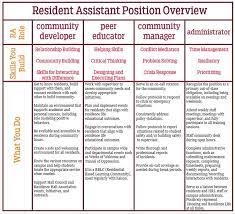Module 8: Campus Living (Part 1)
Introduction to Campus Living
Introduction
Objective: The student will describe options and considerations for living on campus.
This lesson is designed to bring basic awareness of the types of housing options in college, the terms and people you may encounter in a campus living setting, and other things you will need to consider related to living on campus. Working through this lesson will enable you and your parents to discuss which housing options are the best fit for you.
Estimated time 30-45 minutes
Materials included:
Materials needed:
- Internet access
Curriculum Link:
This section corresponds with Module 8 Lesson 1 in the STEPP Classroom Transition resources.
Learn About It
College Living Options

For many students, the milestone of beginning college also includes the milestone of moving out of their family home and into a college residence hall.
However, not all college students live on campus. Some colleges require all students to live on campus; some only require first-year students to live on campus. Some provide campus housing but allow students to decide whether to live on campus or off campus. Others don’t provide any campus housing, so all students live off campus.
Some colleges even offer their students assistance with finding off-campus housing in the area.
In researching colleges you may want to attend, find out what your housing/living options would be and select a school that’s a good fit with your needs and preferences.
Residence Hall/Dorm
Check out this video from Missouri State University Residence Life: Living on Campus
The terms “residence hall” and “dorm” are generally interchangeable. They both refer to housing that is owned and operated by the college or university.
Most universities have multiple types of dorms and different options that students can select from when applying for housing. These may include:
- Coed or single-sex residences. Coed dorms have men and women living in separate rooms on the same floor, on separate floors, or in separate wings. A few colleges offer “gender neutral” housing—in other words, your roommate does not necessarily have to be the same gender as you. However, this option is uncommon.
- Year-restricted residences. Some dorms are restricted to students in a certain college year—either freshman-only or upperclassman-only. Others house students from any year.
The way a dorm is set up is another variable.
- • A traditional hall-style dorm usually has 2-person rooms that share a centrally located bathroom on the floor with multiple showers, sinks, and toilets.
- • A suite-style dorm usually has 1- and/or 2-person rooms that share a single bathroom located within the suite. For example, a suite might have 2 bedrooms connected by a shared bathroom. Some suites may have a common room or living room.
- • An apartment-style dorm is similar to a suite-style dorm, except it also includes a kitchen. It may also be larger or have more common space (living room, etc.).
On each campus (and also from college to college), dorms often vary in their amenities, policies, and restrictions. For example:
- Visitation rules: Who can be in the dorm along with the people who live there, and when can they visit?
- Do students have to leave during college breaks (winter break, spring break) or can they stay in the dorm even when the college is closed for awhile? Dorms that allow students to stay over breaks may be called “Academic Year Halls.”
- Is tobacco allowed in the dorm? Can you smoke in your room? If you are over 21, can you have alcohol or drink in your room?
- What items are considered “illegal” in the dorm? Are some items allowed in certain dorms but not in others? (Please note that this does not refer to items that are actually illegal in a broader context. It refers to things like incandescent light bulbs, aquariums, or grills.)
Living Learning Community
Find out what a living learning community is by watching this short video from Eastern Kentucky University.
These may also be known as Residential Learning Communities, Themed Housing, or other similar names.
The idea behind LLCs is that a student’s development in college includes academic (inside and outside the classroom), life skills, social, wellness, and many more aspects. Although these areas are interconnected for the student, they’re often served by separate and disparate entities within the university. LLCs attempt to create more cohesion for students by linking various aspects of the college experience within the context of students’ interests, goals, or majors.
LLCs often include a residential living component (living in a specific dorm together), an academic component (tutoring; taking certain classes together, sometimes including a “University 101” course or a foundational course within the major curriculum), and a programming, educational, or social component. These components are designed to bring students together for certain activities, which might include social events, programs that develop skills (e.g., resume writing workshops or leadership seminars), programs that help students network (e.g., guest speakers or meet-and-greet events), and much more.
LLCs can be based on any type of commonality that links students together:
- Major: These LLCs might group students together in key classes within their major curriculum, and might also focus on opportunities to develop major-related skills and facilitate contacts with people in the field.
- Year in college: Some LLCs are designed for students who are just entering college as freshmen; others target students newly transferring to the school; still others are designed for sophomores. Each of these provides opportunities, events, and supports based on the experiences that their target students are likely to be experiencing at that point. For example, a Freshman LLC might focus on helping students meet people on campus, get connected with campus resources, and get involved in activities.
- Extracurricular activity: These LLCs are themed around and generally run by other campus organizations. An LLC connected to the Honors Program or the basketball team would fall into this category.
- Goals: These LLCs are usually based on supporting students as they work toward similar goals.
Some colleges have lots of LLC options; some have a few; some don’t offer any LLCs. This is another area to consider when researching colleges and trying to find a good fit.
People in Campus Living
The titles of the campus living staff vary from college to college. Here are some fairly common terms for the people you’ll likely encounter in your residence hall.
Resident Assistant or Resident Advisor (RA)
RAs are student employees who have been hired by the campus living department to serve in this leadership role within the dorms.
There’s usually 1 RA per floor; if your dorm is divided up differently or is particularly large or small, it might assign RAs differently. RAs are responsible for tasks such as:

Getting to know your RA is one of the first things you should do after moving into the dorm! This person is a great resource: they know the campus, they want to help other students, and they live right down the hall.
Transitioning to Living on Campus

For many students, transitioning to living independently in college is a big adjustment. It’s helpful to be prepared for certain key issues ahead of time.
Even students who are fairly independent in high school may be surprised by the level of independent living skills and self-regulation required to succeed in college.
Independent living skills: Students often don’t realize that their parents have been doing many independent living tasks for them behind the scenes. Even students who are aware of and knowledgeable about these tasks may struggle at first to handle them in addition to their academic workload.
- Personal hygiene: Keeping self and clothing clean and appropriately maintained.
- Health/First aid: Keeping up with healthful habits, recognizing and treating minor injuries and illnesses, and seeking health care when needed.
- Money management: Accounting for money earned and spent, making responsible financial choices.
- Safety: Handling emergencies safely and making smart decisions regarding personal safety and security.
- Nutrition: Regularly eating healthful foods in appropriate amounts.
- Housekeeping/Cleaning: Maintaining a clean and healthful living space.
- Transportation: Safely operating and maintaining personal transportation or accessing public transportation.
- Communication: Effectively communicating with others in personal, educational, and other settings.
Self-regulation: Related to all of these independent living skills is the idea of self-regulation. Not only do students need to know how to do all the things described above, but they also need to possess the self-regulation to actually complete the tasks when they need to be completed and balance them with other tasks that must be completed, such as their academic work. Nobody is telling them when to go to bed or when to get up. Nobody makes sure that they eat regularly and nutritiously. There’s no curfew. Nobody waits up to make sure they get home safely at night.
Practicing self-regulation before leaving for college is a key component of college preparation.
Applying for Housing
Some tips to keep in mind when applying for housing in college:
- Pay attention to deadlines. At some colleges, the demand for housing surpasses the supply. If you miss the deadline, you may completely miss your opportunity to live on campus. There may also be late fees or fines associated with submitting a late application.
- Learn about your options. It’s important to know what types of housing are available at the colleges you’re considering and take into account your preferences and needs when applying. As a freshman, you may or may not have much choice in where you live, but if you find out as much as possible about the options, you can make an informed decision when given the opportunity.
- If your housing application includes a lifestyle questionnaire, the housing office will likely use it to help match you with a dorm and/or roommate. It’s crucial to be honest, realistic, and accurate on these forms and to take the time to fill them out completely. If you provide answers that don’t represent your actual habits and preferences, you will likely be matched with someone who will be less compatible on these factors. Here are some examples of the subjects these forms may ask about:
- The hours you prefer to keep (early bird, night owl, etc.)
- Studying style (multitasking with TV or music on, background noise only, very quiet, etc.)
- Cleanliness (messy, neat, cluttered, etc.)
- Social style (like to have friends over often, more private or introverted, depends on time of day, etc.)
- Smoker/non-smoker (although many dorms do not allow any smoking at all inside or near the building, some colleges may place smokers together or allow students to specifically request non-smoking roommates due to allergies or sensitivities).
We know that housing contracts can be long, dense, and full of confusing language. However, it’s extremely important to know what the conditions of your contract are, especially because they can vary drastically from college to college. You need to know:
- Is the contract for a semester? An academic year? A calendar year?
- When is the dorm open and closed?
- What you can/cannot bring into the building. What are the penalties if you’re caught with contraband?
- Who can/cannot be in the building and when?
- What happens if you drop out mid-semester or mid-year?
- How long do you have to cancel the contract if you change your mind?
- What happens if you have a disciplinary violation in the dorm? What about outside of the dorm? Can your contract be cancelled for certain types of disciplinary or legal problems?
- Who is responsible if there’s damage to your room? How do they handle damage when neither roommate claims responsibility?
- How are roommate conflicts or room change requests handled?
- Do you have to sign up for a certain meal plan if you’re living in the dorm? Are your meal plan contract and housing contract linked?
- Anything else you or your parents want to know.
Don’t hesitate to ask your housing office to clarify any information you don’t understand.
Parents Chime In
To research college housing options, start at the website of the housing office. Ask your student to visit the website of a college that he or she may be interested in attending, to research the housing options at that school, and then to complete the “College Housing Options” worksheet for that campus.
Here are direct links to the housing office websites for several colleges in NC:
- East Carolina University: https://campusliving.ecu.edu/
- Appalachian State: https://housing.appstate.edu/
- UNC-Chapel Hill: https://housing.unc.edu/
- UNC-Charlotte: https://housing.charlotte.edu/
- UNC-Wilmington: https://uncw.edu/housing/
- UNC-Greensboro: https://hrl.uncg.edu/
- NC Central University: https://www.nccu.edu/dsa/services/residential-life
- NC A&T State University: https://www.ncat.edu/campus-life/student-affairs/departments/housing-and-residence-life/housing/index.php
- Fayetteville State University: https://www.uncfsu.edu/campus-life/housing-and-residence-life
- Elizabeth City State University: https://www.ecsu.edu/student-life/housing/index.php
- Western Carolina University: https://www.wcu.edu/experience/life-on-campus/residential-living/index.aspx
Objective Check
Have you accomplished today’s objective?
Objective: The student will describe options and considerations for living on campus.
If so, congratulations!
If not, go back and find one option for living on campus that best fits you and discuss it with your parents.
Digging Deeper
Sources of LLC examples:
- https://education.ecu.edu/llc/
- https://housing.appstate.edu/rlc
- https://housing.unc.edu/learn/residential-learning-programs/
You can also take a tour of the dorms when visiting campus and ask current students about their experiences. Keep in mind that the student employees (tour guides, RAs, etc.) at some colleges may be instructed not to say negative things about the school. It’s important to talk to these people, but it’s also good to talk to some students who aren’t on the payroll to hear both pros and cons.
